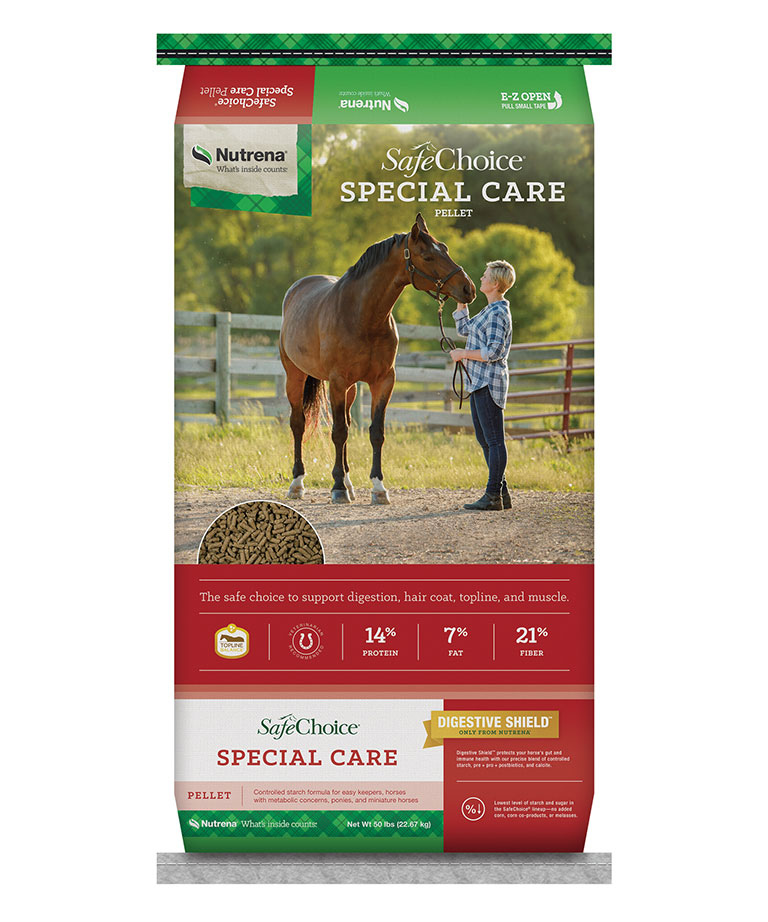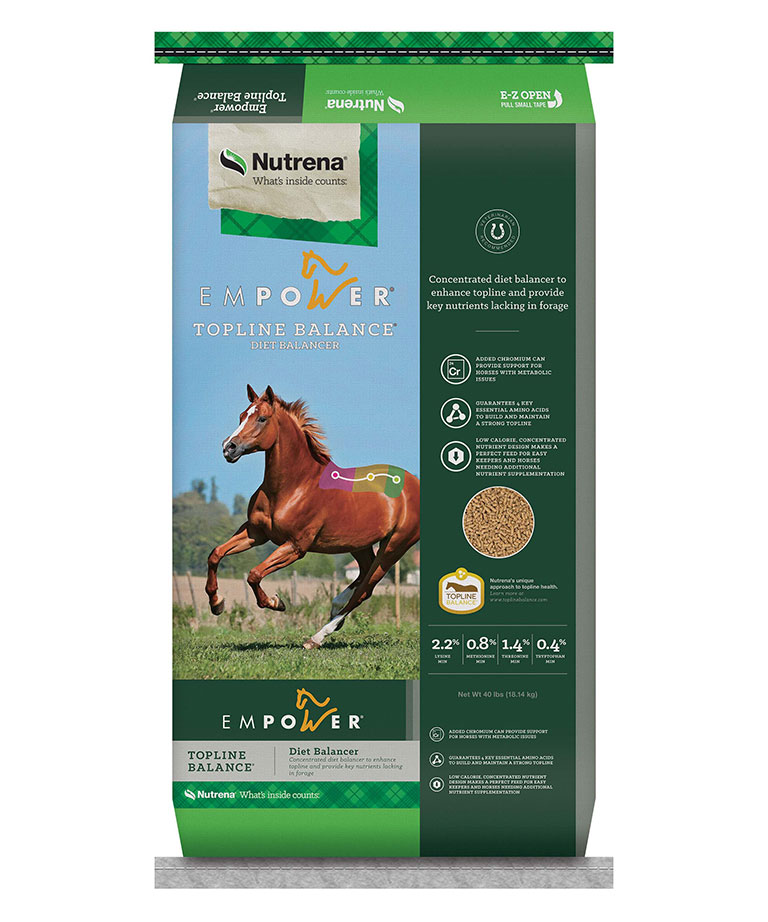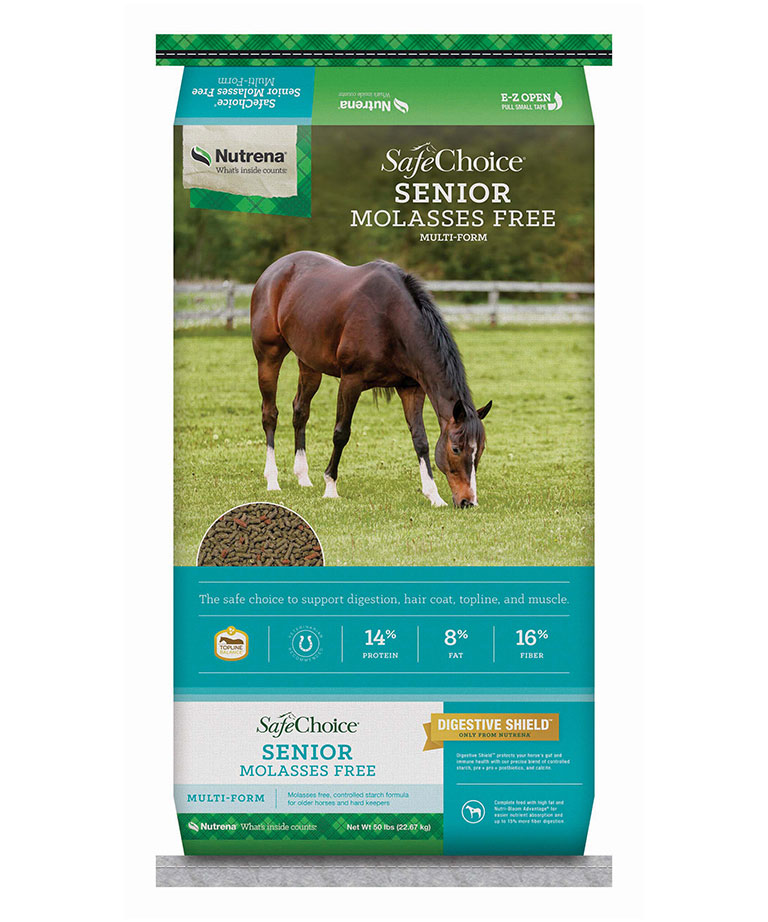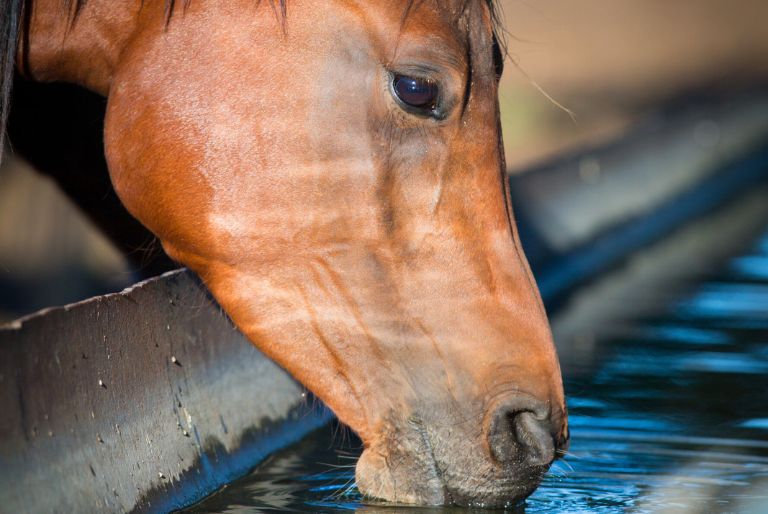Managing The Horse With Cushing’s

The vet has diagnosed it and the reality begins to sink in, your horse has Cushing’s disease. Now what? Cushing’s is an endocrine disease caused by a tumor on the pituitary gland that is most often seen in older horses and ponies. This tumor results in high cortisol and is most often exhibited by hyperglycemia (high glucose), excessive thirst, excessive eating, excess urination and a shaggy haircoat. At this time there is no cure for Cushing’s but by keeping a close eye on nutrition and management, we can improve the quality and possibly lengthen the life span of a Cushing’s horse.
Routine is important to the Cushing’s horse because changes in diet, medication, etc. can have negative effects on health. Cushing’s horses have a compromised immune system and for that reason, seemingly small or mundane parts of their care become very important. There are a few management practices that are particularly important:
- Deworming: Cushing’s horses can be more susceptible to parasites because of their weakened immune system. Work closely with your vet to develop a deworming schedule and program that is catered to your horse. Your vet should also be seen regularly for dental care and wellness exams.
- Farrier Care: Regular farrier visits are important because certain types of leg and foot conditions are more likely with a Cushing’s horse, such as abcesses of the hoof and laminitis. Signs of laminitis can be a tender footed stance and the horse acting like he is “walking on egg shells”.
- Grooming: Hair coat and temperature regulation are problems in Cushing’s horses so you will want to help your horse as much as you can by preventative grooming practices. Consider body clipping in hot/humid weather and be mindful of temperature and weather changes. When blanketing, make sure the hair coat is dry and clean to help reduce the incidence of skin issues. Prompt treatment of any wounds or infections is essential.
- Feeding: One of the main goals in feeding the Cushing’s horse is to control the starch + sugar (NSC) content per meal. This helps to regulate the blood glucose and insulin levels. The NSC content of the concentrates fed to the horse is important, but even more so is the content of the hay /forage and the combination of the two together. Some guidelines have suggested an NSC maximum value of 10-13% based on the total diet (forage + concentrate). Testing your hay will give you a good idea of the NSC values.
- Consider a feed that is fortified with lysine, methionine, biotin, vitamin E and complexed trace minerals (copper, zinc, manganese and selenium) to help maintain muscle mass, support hoof growth and support the immune system.
Following these tips will help improve the quality and possibly length of life for the horse diagnosed with Cushing’s. If you have specific questions regarding your horse, please work with a qualified nutrition consultant or your veterinarian.




